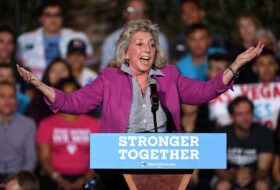
Illinois lawmakers now have two separate versions of the Internet Gaming Act (IGA) to consider. Rep. Jonathan Carroll introduced HB 2320 on Feb. 14, 2023. Like HB 2239, filed one week before, it would make online casinos legal in the state. However, the two bills differ in the specifics of the implementation.
The former bill’s sponsor is Rep. Edgar Gonzalez, Jr. He and Carroll are both Democrats representing districts within the Chicago metropolitan area. That bodes well for their chances of reconciling their respective bills and producing a single piece of legislation to push forward. On the other hand, the differences suggest that behind the scenes, various stakeholders want something slightly different out of the Internet Gaming Act.
Overall, it is probably a good sign that discussion is happening at all. Illinois has been oddly silent on the topic of online casinos since the first legislative effort stalled in 2021.
Carroll was a co-sponsor of that effort alongside Rep. Robert Rita. Although Rita remains in office, his name doesn’t appear on either piece of legislation this year.
Perhaps unsurprisingly, Carroll’s legislation is a repeat of the 2021 effort he spearheaded, while Gonzalez has changed a few things. The differences between the bills can be summarized as follows:
- HB 2239 (the Gonzalez bill): 15% tax rate, $250,000 license fee, online registration from day one
- HB 2320 (the Carroll bill): 12% tax rate, $500,000 license fee, six-month in-person registration window
On the other side of the legislature, Sen. Cristina Castro has introduced a companion bill, SB 1656. Like Carroll, Castro was involved with the 2021 effort, backing the Senate version of the bill. However, the content of her bill matches Gonzalez’s, not Carroll’s.
Carroll Proposes Lower Tax on Illinois Online Casino Revenue
Carroll’s proposal of a 12% privilege tax on gross iGaming revenue is the same as what was in the 2021 IGA. It’s probably fair to call it an industry-friendly proposal.
Even the 15% Gonzalez proposes would be a tie for the lowest tax rate in the country among states with legal online casinos. New Jersey and West Virginia also impose a 15% tax on gross gaming revenue.
At 12%, Illinois would stand alone as the state with the lowest online casino taxes. It would also be lower than the Illinois sports betting tax rate, which is 15%.
Taxing online casinos at a lower rate than sportsbooks would also be quite different from other states.
Conventional wisdom holds that online operators can tolerate a higher tax rate on interactive gaming revenue than sports bets. That’s because the online casino vertical tends to yield at least twice as much gross revenue as sports betting while also being less volatile and less seasonal.
Therefore, states that have both usually either have a single tax rate across the board or charge a higher rate on online casino revenue.
Higher License Fees Would Not Make Up for Lower Taxes
On the other hand, Carroll’s bill would impose twice the fee for getting a license and a higher cost for renewing it as well.
Gonzalez proposes $250,000 upfront plus $100,000 every four years. Carroll, in 2021 and 2023, proposes $500,000 plus $250,000 every four years.
However, that cost would pale compared to a three percentage point difference in the tax rate. Like the other big online gambling states – NJ, PA and MI – we can expect that once it gets up to speed, an Illinois online casino market would generate close to $2 billion in annual gross gaming revenue.
Three percent of that would be around $60 million.
By comparison, even if the state were to attract 20 online casino brands, the difference in licensing costs between the two bills would amount to $5 million upfront plus an average of $750,000 in annual renewal fees.
Only small operators would feel the effects of the higher fees. They are having a tough time competing in the crowded US market, to begin with.
In-Person Registration Back in the Conversation
The other difference between the proposals is that HB 2320 brings back the idea of a post-launch period in which players need to present themselves in person at a retail casino to sign up for online gambling accounts.
Like the 2021 IGA, HB 2320 would make this a requirement for the first six months of the market.
Illinois had a similar temporary restriction in place in the early days of its sports betting market. Iowa tried the same, with a policy that expired in January 2021. Gross revenue for the market that month was $11.3 million, compared to $3.2 million the year before.
It’s a policy that had few supporters to begin with. Critics now point to Iowa’s results as evidence of why it’s a bad idea.
Still, it has the support of some retail operators. It gives them a chance to market their brick-and-mortar gaming to online customers when they show up to register. In theory, it also puts online-only companies like DraftKings and FanDuel at a temporary disadvantage. However, DraftKings now owns the Casino Queen retail casino in Illinois, and FanDuel has a retail sportsbook at Par-a-Dice Casino. So, it’s hard to see what this policy would accomplish.





